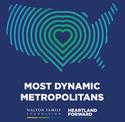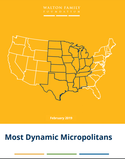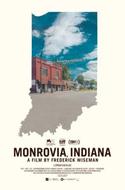I've spent many, many years of my career working to improve the economic development prospects of communities. Wanting to make a meaningful, positive contribution to the revitalization of cities is what pushed me into this career path. More to the point, I've spent a good deal of that time working in places that were facing stiff economic headwinds working against them. read more »
Heartland
The Community and Economic Development Hierarchy
- Login to post comments
The Midwest’s Small Suburbs
I’ve been examining data lately, revisiting a topic I’m mentioned in the past, namely the smaller sizes of suburbs in Midwest cities compared to other parts of the country. This applies to much of the US east of the Mississippi as well.
West of that river, there are a number of states and regions where there are large suburbs, some of them ranking among the largest municipalities in the country. For example, here are the ten largest suburbs of Dallas-Ft.Worth: read more »
- Login to post comments
New Metropolitan Rankings Show Knowledge-Based Industries and Entrepreneurship Drive Success
Today, the Walton Family Foundation released “The Most Dynamic Metropolitans,” new research ranking the economic performance of metropolitan areas in the Heartland and across the country. The study demonstrates that a knowledge-based economy spurs economic growth in metropolises across the United States. Metro areas with knowledge-based economies ranked higher than cities that have yet to make much-needed investments in technology, education, entrepreneurship and commercialization. read more »
- Login to post comments
Small-Town America Measures Up to Have Big-Time Potential for Economic Growth
As American as baseball, hot dogs and apple pie, Main Street America - and its small towns - is a central component to understanding the economic forces at work across the United States. Dotting the U.S. map – in the Heartland and beyond – are 531 small towns, better known as micropolitan statistical areas, which comprise of one or more counties with at least one city with more than 10,000 but less than 50,000 in population. read more »
- Login to post comments
Blaming Workers Again
Working-class people often get blamed for their troubles. They should have planned better, been less demanding, or just been smarter. Those are just some of the judgments that surfaced again in the weeks after General Motors’ announcement late in November that it would close five plants in the U.S. and Canada, leaving thousands of workers without jobs. read more »
Coastal Branding Tactics for Heartland Cities
Indianapolis Monthly magazine just ran an interesting feature article on Gwendolyn Rogers, proprietor of a local store called the Cake Bake Shop. I have never been to it and am not the target market. But I thought there were a few interesting elements to it that are relevant not just to marketing businesses but cities. read more »
- Login to post comments
The Rise of Columbus, Ohio
My latest article is online over at City Journal. It’s a look at Columbus, Ohio, which is doing very well these days. Here’s an excerpt: read more »
- Login to post comments
2018 Standard of Living Index
The Center for Urban Opportunity (COU) has developed a measure (the “COU Standard of Living Index”) that estimates the purchasing power of real average pay in metropolitan areas compared to that of the average employee who moves to a new residence. We have found that the places that return the most for median pay are varied. read more »
- Login to post comments
Tulsa, Oklahoma Will Pay You $10,000 to Move There
Tulsa is joining the parade of places that are providing economic development incentives to people who are willing to relocate there. I previously mentioned Vermont’s program and also that of a Cincinnati suburb. read more »
- Login to post comments
Monrovia, Indiana, Idyll or Elegy?
Frederick Wiseman turned his documentary filmmaking lens to the Midwest in his new work Monrovia, Indiana. My review of the film is now online at City Journal. Here is an excerpt:
"Wiseman spent ten weeks filming in this small Indiana town of about 1,500 people, creating a fair and insightful portrait of a section of the rural Midwest. He shows us quotidian aspects of life in Monrovia that are likely exotic to a typical big-city documentary-film audience: corn and hog farming, locals holding court at the town diner, a mattress-sale fundraiser for the local school, a farm-equipment auction, a Lion’s Club board meeting, and more. read more »
- Login to post comments






















